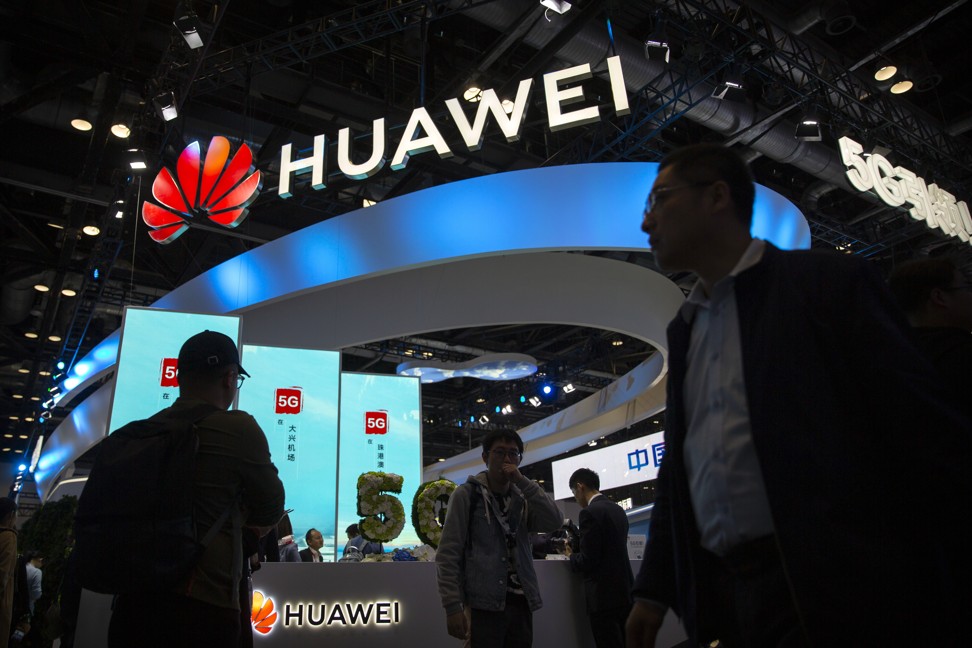
Huawei says relationship with Chinese government ‘no different’ from any other private company in China
- While it did not deny receiving government assistance, Huawei said all tech companies in China, including foreign ones, are entitled to similar subsidies
- The tech firm was responding to a report that estimated the company had received as much as US$75 billion in state support
Huawei Technologies said on Thursday that its relationship with the Chinese government was “no different” from any other private company operating in China, after a report estimated it had received US$75 billion of state support that helped it grow into the leading 5G network gear supplier it is today.
“Like other tech companies that operate in China, including those from abroad, Huawei receives some policy support from the Chinese government,” Karl Song, vice-president of the company’s corporate communications department, said in a statement. “But we have never received any additional or special treatment.”
The company was responding to a report published by The Wall Street Journal on Wednesday that said the Chinese government promoted Huawei's global rise with as much as US$75 billion in grants, credit facilities, tax breaks and other financial assistance.
According to the Journal, Chinese government assistance helped the Shenzhen-based company grow from a little-known vendor of phone switches to the world’s largest telecommunications equipment supplier, allowing it to offer generous financing terms and undercut rivals’ prices by some 30 per cent.
“While financial support for favoured firms or industries is common in many countries, China’s assistance for Huawei, including tax waivers that began 25 years ago, is among the factors stoking questions about Huawei’s relationship with Beijing,” the report said.

The Shenzhen-based company has long denied close links with the Chinese government and maintained that Washington has no evidence to support accusations that its products can be used to spy for China.
CIA says Huawei funded by Chinese state security, newspaper reports
In the statement on Thursday, Song said the company’s working capital primarily comes from its own business operations – which make up 90 per cent of its working capital – and external financing rather than government subsidies.
“Huawei's external financing follows all market rules, and our cost of debt aligns with market standards,” Song added.
The Journal’s review was based on public records including company statements and land-registry documents, with a methodology it said had been verified with subsidy analysts.

The report said Huawei’s subsidies in the five years to 2018 were 17 times as large as similar subsidies reported by Finnish company Nokia, the world’s second-largest telecoms equipment maker.
About US$46 billion or the largest portion of assistance to the Chinese company came from state lenders, including more than US$30 billion in credit lines made available by China Development Bank (CDB) and Export-Import Bank of China for Huawei’s customers in the last two decades, the report said.
However, Song said at a press conference on Thursday that Huawei was not the direct beneficiary of the US$30 billion credit line mentioned in the report – the company had signed a strategic agreement with CDB to provide loans to Huawei clients, not to Huawei, he said. "CDB leading loans to Huawei clients is purely the commercial act which studies the qualifications of each Huawei client [applying for a loan] case by case. Huawei is not part of the US$30 billion credit line at all."
The Shenzhen-based company also saved as much as US$25 billion in taxes between 2008 and 2018 due to state incentives to promote the tech sector, as well as receiving US$1.6 billion in grants and US$2 billion in land discounts, said the Journal.
In the southern China city of Dongguan, Huawei paid prices that were 10 per cent to 50 per cent of average rates for similarly zoned land in the city, saving it another estimated US$2 billion, according to the review.
Huawei founder stresses trustworthiness as top priority
While Song did not deny that Huawei received government subsidies, he said the company applied for them just like any other company in China does, including foreign companies.
“The fact is that every tech company that operates in China is entitled to certain subsidies from the government, as long as they meet certain conditions,” Song, adding that these subsidies are primarily to support research programmes.
“Over the past decade, the total amount Huawei has received in R&D (research and development) subsidies from governments both inside and outside China amounted to less than 0.3 per cent of our total revenue. In 2018, we only received an amount equal to 0.2 per cent of our annual revenue,” Song said.
Outside of China, Huawei also enjoys tax incentives from foreign countries, such as France, which gives "huge tax refunds" for R&D, he added.
“Huawei does not comment on unsubstantiated allegations backed up by zero evidence from anonymous sources,” a company representative was quoted as saying for the Times report.
The paper said Huawei is wholly owned by a holding company, of which 99 per cent is held by an entity called a “trade union committee”, potentially implying that the telecoms equipment giant is owned and controlled by the government.
“The trade union committee, which manages the union in Huawei, organises some amateur, after-work events including physical activity, to ensure employees have a healthy work-life balance,” said Jiang Xisheng, chief secretary of Huawei’s Board of Directors, in a press conference in April. “It is not involved in any decisions connected to Huawei’s business and operations.”
For more insights into China tech, sign up for our tech newsletters, subscribe to our award-winning Inside China Tech podcast, and download the comprehensive 2019 China Internet Report. Also roam China Tech City, an award-winning interactive digital map at our sister site Abacus.

